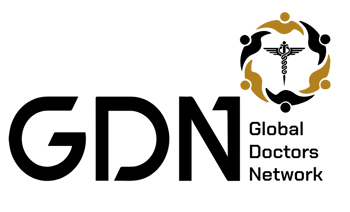
Acute Care Common Stem
ACCS training is a common initial starting point for training in Emergency Medicine, Internal Medicine, Anaesthetics and Intensive Care. It is a 3/4 year programme which consists of 2 years rotating through Acute Medicine, Emergency Medicine, Anaesthetics and Intensive Care Medicine followed by time spent in the parent specialty of choice.
Essential Criteria for ACCS posts:
Clinical Knowledge
Interest in, and understanding of the training programme
Workplace Skills
Ability to work in multi-professional teams and supervise colleagues
Ability to lead, make decisions, organise and motivate other team members
Ability to manage/prioritise own and others’ time effectively
Ability to work safely under pressure and deliver good clinical care in the face of uncertainty
Ability to monitor developing situations and anticipate issues
Good basic IT skills, including Microsoft Office, email, and ability to learn new systems
Academic Knowledge
Understanding of research, including awareness of ethical issues
Understanding of basic principles of audit, clinical risk management, evidence-based practice, patient safety, and clinical quality improvement initiatives
Knowledge of evidence-informed practice
Personal Skills
Commitment to personal and professional development
Ability to work on own initiative, demonstrating curiosity
Strong attention to detail, preparation and planning
Ability to communicate messages effectively to a range of audiences
Ability to negotiate and build positive professional relationships
Strong problem-solving skills, with an analytical/scientific approach to problem solving
ACCS Emergency Medicine:
Year 1:
Acute Medicine 6 months
Emergency Medicine 6 months
Year 2:
Intensive Care Medicine 6 months
Anaesthetics 6 months
Year 3
Emergency Medicine 12 months including Paediatric Emergency Medicine
ACCS Emergency Medicine Desirable Criteria:
Understanding of NHS management and resources
Experience of management
Experience of research
Experience of audit and quality improvement
Experience of teaching
Clinical Skills
Ability to apply sound clinical knowledge and judgment to problems
Ability to prioritise clinical need
Ability to maximise safety and minimise risk
Recognition of, and ability to undertake the initial management of, an acutely ill patient
Personal Skills
Ability to work well in a team environment
Ability to work in multi-professional teams
Ability to show leadership, make decisions, organise and motivate other team members, for the benefit of patients
Capacity to work as a team leader or team member
Evidence of up-to-date and demonstrable advanced life support skills
ACCS Internal Medicine:
Year 1:
Acute Medicine 6 months
Emergency Medicine 6 months
Year 2:
Intensive Care Medicine 6 months
Anaesthetics 6 months
Year 3: (equivalent to IMT Year 2)
Year 4: (equivalent to IMT Year 3)
4-6 month posts in range of medical specialties including Care of the Elderly
Following completion of all 4 years trainees are eligible for appointment to a group 1 higher training programme in a JRCPTB medical specialty. Trainees are also eligible to apply for a group 2 specialty after 3 years of ACCS-IM.
ACCS Internal Medicine Desirable Criteria:
Understanding of NHS management and resources
Experience of management
Experience of audit and quality improvement
Clinical Skills
Ability to apply sound clinical knowledge and judgment to problems
Ability to prioritise clinical need
Ability to maximise safety and minimise risk
Recognition of, and ability to undertake the initial management of, an acutely ill patient
Generic Professional Capabilities
Awareness of the professional, legal, ethical and governance framework of NHS practice
Personal Skills
Evidence of self-reflective practice
Qualifications
MRCP (UK) Part 1
Research, Academic and Teaching
Evidence of postgraduate study
Evidence of research achievements e.g. publications, presentations and posters
Evidence of teaching feedback
Evidence of training in teaching


